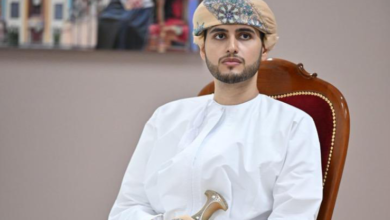The “First International Conference in Vector Control Intervention for Dengue Fever in Oman” is concluded by the Muscat Municipality.
Oman Horizon Bulletin

More than 200 experts in epidemiological surveillance and pest management from all over the world, including those from the GCC, Malaysia, Singapore, Indonesia, and Brazil, attended the event.
MUSCAT: On October 30, 2024, the JW Marriott Muscat, Madinat Al Irfan, hosted the First International Conference in Vector Control Intervention for Dengue Fever, which was successfully finished by the Muscat Municipality. The World Health Organization (WHO) and the Ministry of Health worked together to organize the meeting.
Over 200 professionals from around the world, including those from the GCC, Malaysia, Singapore, Indonesia, and Brazil, were present at the event. The WHO, the US Centers for Disease Control and Prevention (CDC), and other health organizations provided international speakers to the participants. The main emphasis of the discussions was the most recent vector control research, which mostly targeted the Aedes mosquito, which is the principal vector that spreads dengue illness. Delegates exchanged knowledge to create best practices and practical suggestions by discussing their nations’ experiences against mosquitoes.
His Excellency Ahmed bin Mohammed Al-Humaidi, Chairman of the Muscat Municipality, emphasized in his remarks: “We are committed to promoting public health research and innovation, which is why we are holding this conference in the Sultanate of Oman. Oman aspires to be an active and leading participant in international efforts to combat disease vectors and offer creative solutions to improve public health locally, regionally, and globally under the prudent leadership of the Sultanate.
We are happy with the success of this first meeting, which allowed participating professionals and entities to share expertise,” he continued. In order to properly manage and control the spread of dengue fever, governments around the world will greatly benefit from the recommendations that emerged from these conversations.
Four in-depth discussion sessions were held throughout the two-day conference, covering a number of important subjects, such as vector-borne diseases with an emphasis on the epidemiology and temporal status of infections. The talks also included the use of contemporary monitoring techniques for dengue fever prevention and control, Aedes mosquito control initiatives and experiences in other nations, vector control innovations, and the importance of community involvement in public health campaigns. The conference concluded with special sessions to lay out suggestions that can help nations better address these health issues. Among these suggestions are:
- Enacting Legislation and Regulations, including a public health law, to effectively manage and reduce vector density – particularly the Aedes mosquito – in Oman.
- Sectoral Integration for Vector Control through training, capacity building, and research.
- Develop effective strategies to encourage sustained community involvement in identifying and managing Aedes mosquito breeding sites.
- Boost collaborations, particularly with academic institutions, to encourage the application of contemporary technologies to further research and enhance disease vector management strategies.
- Make sure there is enough money to support vector control programs’ sustainability, increase public awareness, and improve both human and technical resources.
- Using contemporary technologies for ongoing data analysis, create a strong monitoring system to identify mosquito breeding grounds early and forecast epidemic areas and peak times.
- Establish national leadership in important fields like entomology, public health, and field epidemiology.
The conference’s main objective was to promote cooperation and knowledge sharing among participating nations, but it also aimed to accomplish other strategic goals. Additionally, it examined methods to improve vector control procedures and highlighted country experiences in dengue management. Building national capacities for sustainable pest management, talking about technological developments in the sector, and advancing the idea of Integrated Vector Management (IVM), a comprehensive strategy that blends technical and environmental solutions for long-term benefits, were the main topics of the sessions.
His Excellency Al-Humaidi thanked the Muscat Municipality employees and all other cooperating organizations for their contributions to this endeavor. “We thank the arduous work of the staff at Muscat Municipality in vector control and public health,” he said. We are steadfast in our efforts to curb the spread of dengue fever and strengthen our collaborations with domestic and foreign organizations to create long-term health solutions.
Additionally, he expressed gratitude to all of the participating nations and organizations, saying: “We truly appreciate your efforts in developing a common vision for improving public health, and we greatly respect this cooperation.” We are collaborating to protect our communities and guarantee the welfare of coming generations.
Leading pest control businesses showcased the newest technologies and solutions at an exhibition conducted in conjunction with the conference. In order to support coordinated global efforts to control disease vectors and lessen their impact on public health, the exhibition gave stakeholders, researchers, academics, and industry specialists a forum to share ideas and collaborate.
Muscat Municipality hopes that this project would bolster national efforts to prevent disease vectors and lessen the spread of dengue in Oman. In keeping with its objective to safeguard and advance public health, the municipality is dedicated to creating creative and long-lasting solutions to new environmental and health issues.
For all the latest news from Oman and GCC, follow us on Instagram, like us on Facebook & subscribe to our YouTube Channel, which is updated daily





